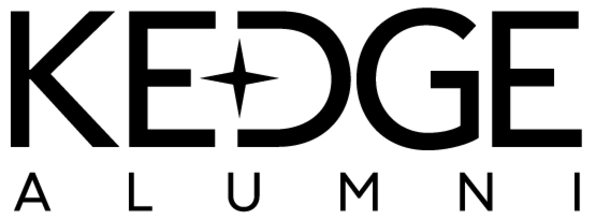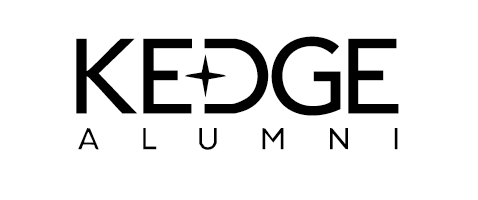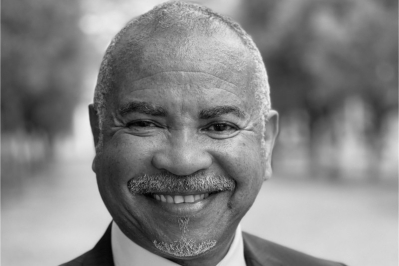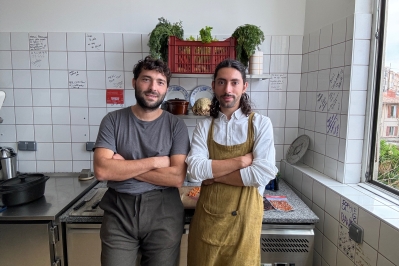News

Meet Clément, Trainer and Professional Coach
A KEDGE graduate from the class of 2013, Clément Jacquier is now self-employed as a trainer and professional coach specializing in emotional intelligence.
To start, tell us about your academic background: what did you study at KEDGE and before joining the school?
I joined KEDGE (Bordeaux campus) in 2008 after completing a science-focused high school diploma (BAC S) and a preparatory class in my hometown of Dijon. During my first two years at KEDGE, I followed a fairly general curriculum with courses in sales, marketing, accounting, entrepreneurship, and HR. Although I initially envisioned a career in sales management within a large corporation, I always felt I would eventually start my own business—hence my desire to explore a wide range of subjects.
Alongside my studies, I spent two wonderful years involved in the school’s student associations: the BDE (student union) with campaigns in my first year and a mandate in my second, and the BDS (sports association) as manager of the men’s handball teams. I also took a gap year working for Danone, a company I met during the school’s sales competition and Business Week. I spent six months in Lyon as a sector manager and six months at the Paris headquarters in sales animation. I was lucky to finish my studies with a university exchange in Mexico, which remains one of my most memorable life experiences!
Tell us about your career after graduation: what roles did you hold, and what did they teach you?
After graduating, I joined Barilla as a Retail Sector Manager, then moved into the pharmaceutical industry as a Pharmaceutical Sales Representative for the lab division of Reckitt Benckiser. These two commercial roles taught me a lot about perseverance and resilience, given the daily demands and commitment required.
During this time, I also observed various behaviors and dysfunctions that impacted human relationships—both internally within the companies I worked for and externally with clients: difficulty managing stress, communication issues (within or between teams), resistance to change, and mental blocks that prevent people from overcoming challenges. This was the starting point of my career shift:
How can we help people overcome these difficulties to improve interpersonal relationships and move past obstacles?
What is your current project/situation? How did the idea and desire to do what you do today come about?
After completing a one-year training program in professional coaching and earning an additional certification in Process Communication (PCM), I launched my own business specializing in corporate support—through coaching or training. Support can be individual, helping an employee facing a challenge, or collective, guiding a team through a specific issue.
Over time, I developed a particular interest in Process Communication, which is rooted in emotional intelligence. It helps individuals understand their own behavior and that of others to improve interpersonal relationships. Its applications are broad and relevant to many areas: communication, team cohesion, management, and stress management.
What are your development goals for the future?
I want to further develop team coaching. I truly believe companies must rely on collective strength to meet today’s challenges, but I see many difficulties in daily team interactions. Working together means recognizing each person’s strengths and ways of functioning, and seeing how combining these potentials can create something greater than the sum of individual contributions.
My goal is to support individual fulfillment to elevate the collective—using playfulness to serve learning! One of my upcoming initiatives is an innovative communication workshop called OENO-COMMUNICATION, which uses wine as a metaphor to highlight differences in perception among participants. Based on the Process Communication Model®, the workshop helps you identify your communication style and that of your peers to optimize interactions. The aim is to reveal individual behaviors within the group to better understand personalities and collaborate more effectively—all while enjoying a convivial moment. Imagine learning more about yourself while tasting great wine!
How did your education at KEDGE Business School help you become who you are today, and how did its teachings support your project’s development?
My time at KEDGE helped me develop two key skills: teamwork, through both student associations and academic projects, and agility—the ability to try, change, fail, adapt, bounce back, and succeed in all kinds of projects. The alumni network has also been very helpful; I currently collaborate with Nicolas Felger on various topics.
If you had to give one piece of advice to KEDGE graduates who want to follow a similar path, what would it be?
Choose your initial training wisely. The coaching profession is becoming more professionalized, and certifications and diplomas are increasingly essential and a mark of quality. But above all—go for it! It’s a passionate career where every session is different, and you learn a lot about yourself.






